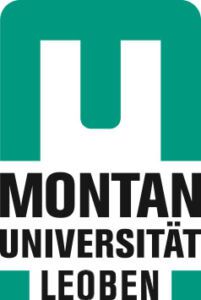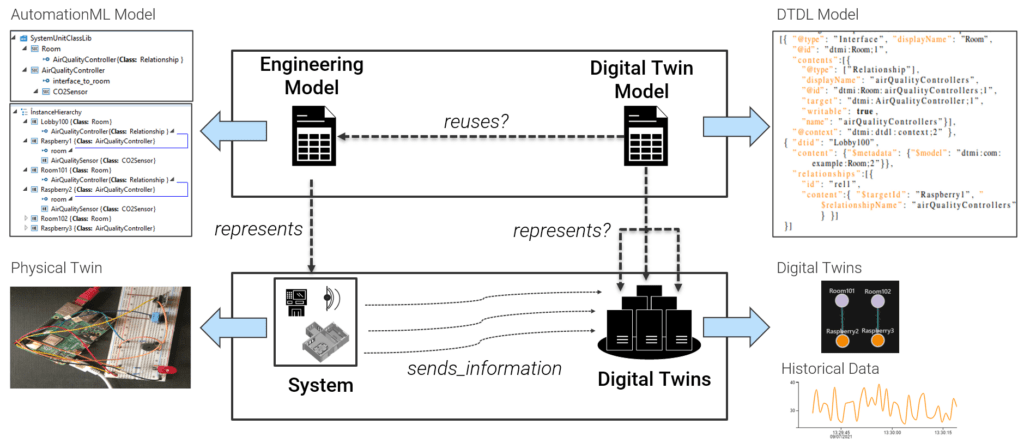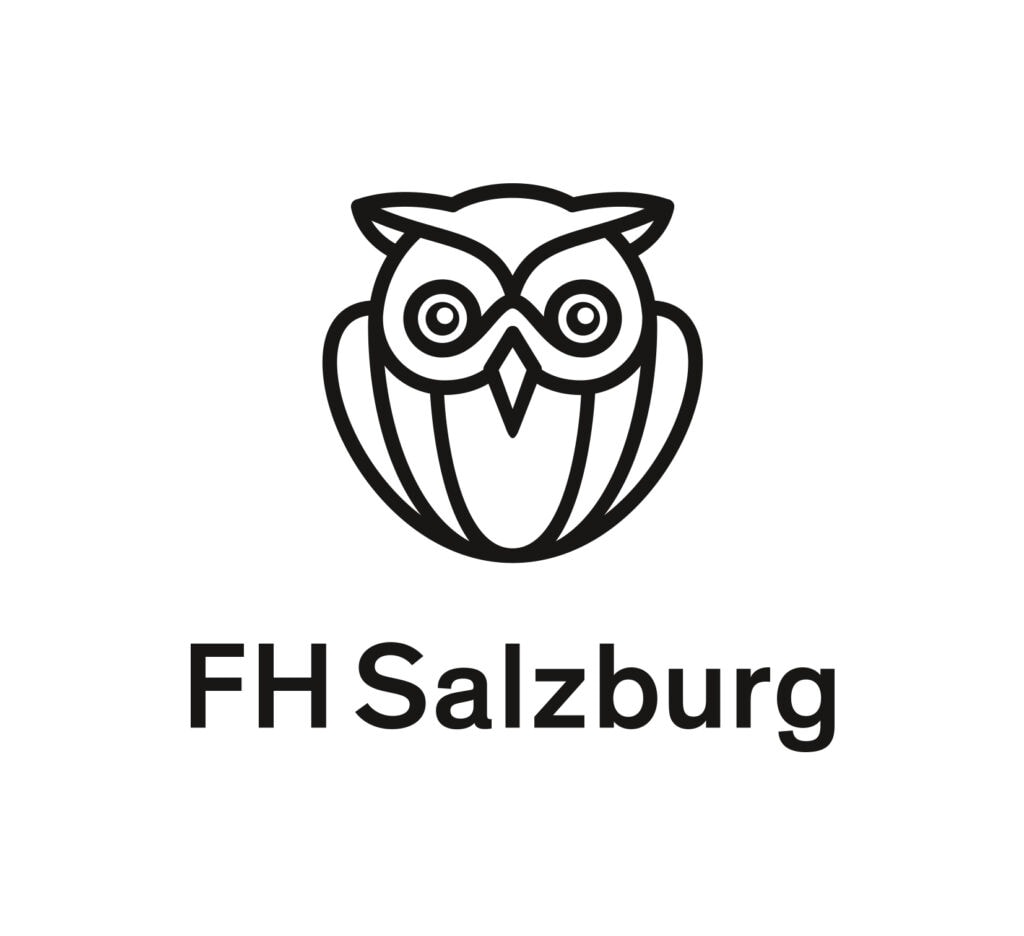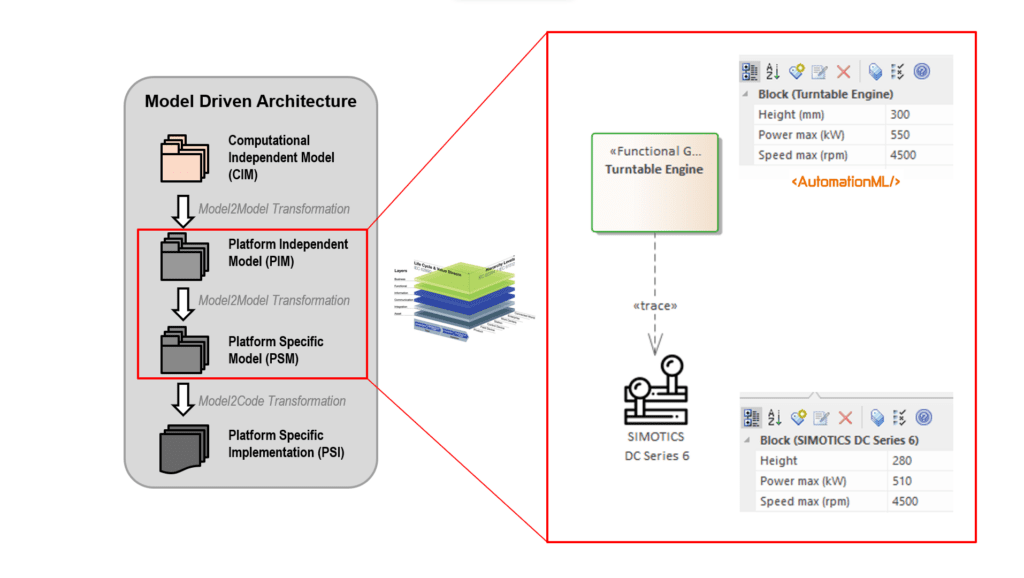On this page you will find interesting research topics related to AutomationML. Contact information or further information on the respective topics can be found via the provided links.
A Flexible CAEX Based Model for Standard Integration in Tunnelling

This work from the Chair of Subsurface Engineering at Montan Universität Leoben, Austria, addresses the problems of implementing interoperability and seamless data exchange in multidisciplinary collaboration between different stakeholders in underground construction projects.
It highlights the problems arising from the use of interfaces between tools and addresses the semantic heterogeneity and divergent perspectives in the standardized data models describing the subfield of subsoil surveying and interpretation. A synthetic reconstructive approach to deal with heterogeneous perspectives on the subsoil, the main construction material in underground projects, based on the neutral data format CAEX is presented and evaluated in the use case of a subsoil information model. The goal is to enable BIM-compliant modeling of its geological, geotechnical, and hydrogeological properties and a universal translation strategy that focuses on data exchange rather than different proprietary data formats. The approach aims to facilitate integration without limiting the autonomy of data sources or the diversity of perspectives.
Further information on this research topic can be found through the following buttons:
AML4DT: A Model-Driven Framework for
Developing and Maintaining Digital Twins with AutomationML

AML4DT can automatically establish connections between systems and their DTs based on dedicated DT models. These DT models are automatically derived from existing AutomationML models that are already created during the engineering phase of a system. It is shown that the effort for creating and maintaining DTs is reduced by 50 % when using the AML4DT framework.
The concept was developed within the project of The Christian Doppler Laboratory for Model-Integrated Smart Production (CDL-MINT) and was presented at the ETFA conference 2021.

Further information on this research topic can be found through the following buttons:
RAMI Toolbox – Modelling aid for RAMI 4.0

The Josef Ressel Center for Dependable System-of-Systems Engineering of the Salzburg University of Applied Sciences developed a method for fully-automatic model transformations in the context of RAMI 4.0. By using AutomationML, which represents a library dealing as product catalogue of available components, the best possible solution to execute required functions is found.

Further information on this research topic can be found through the following buttons: